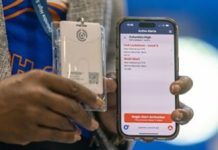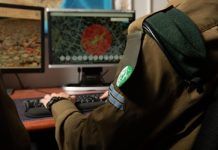Chinese video surveillance systems maker Zhejiang Uniview Technologies has called on the US government to reconsider the company’s inclusion in a trade blacklist, as geopolitical tensions between the world’s two biggest economies continue to escalate.
Hangzhou-based Uniview on Tuesday was added to the so-called Entity List for enabling “human rights violations, including high-technology surveillance targeted at the general population, Uygurs, and members of other ethnic and religious minority groups”, the US Department of Commerce, which oversees the country’s trade policy, said in a filing.
In a statement, Uniview said the action was groundless and that US authorities have never informed the company of any investigation. “We urge the US government to re-examine [this decision],” Uniview said. The company was blacklisted on the same day as Beijing Zhongdun Security Technology Group, a security hardware and software company set up by China’s Ministry of Public Security.
US suppliers of the two blacklisted Chinese firms must apply for a licence from the Bureau of Industry and Security to export any products. The licence review policy, however, is usually a “presumption of denial” – meaning that applications are unlikely to be granted.
The trade sanctions on Uniview and Zhongdun mark the latest escalation of tensions between Beijing and Washington, following the Commerce Department’s blacklisting of 140 Chinese semiconductor enterprises earlier this month.
The US also announced new export restrictions on 24 types of chipmaking equipment and three categories of software essential for semiconductor development. Still, Uniview downplayed the effect of US trade restrictions. The company said the US action has “no major impact” on its operations and that it will ensure stable supply to its global clients.








